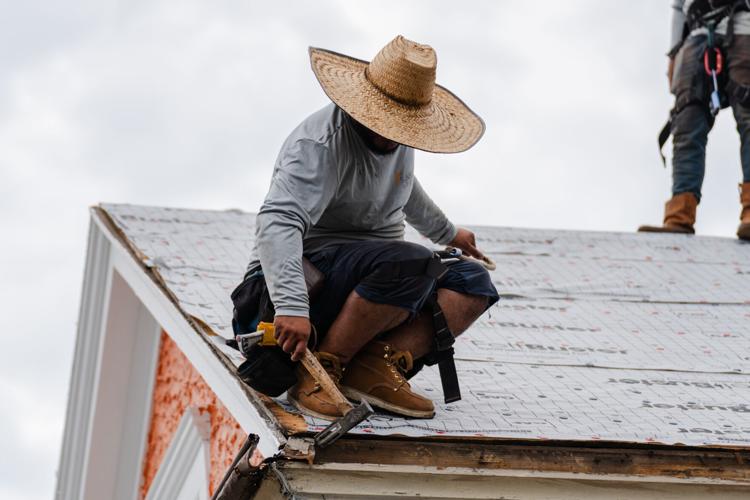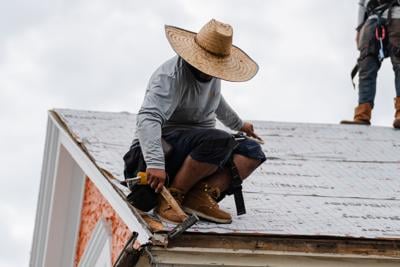I love the architecture, the arts, the culture, the food, the music, the people. I love our gumbo population, with its strong Black base.��
But there's no denying that some of my city's neighborhoods have less-than-desirable housing stock. Some residents are hanging on by their fingernails,
Like voters across this great country, New Orleans voters this fall will decide whether our next president will be a former president or a current vice president.
whether affordable housing will be a budgetary priority in our city's future — regardless of who sits on the City Council.
During the 10-day early voting period, by absentee ballot and on Election Day, voters can choose to guarantee a steady stream of affordable housing dollars by locking into the city charter a dedication of 2% of the city's general fund revenues (i.e. locally generated and not already dedicated funds) for affordable housing.
If voters approve the proposed charter amendment, the money could be used to help developers build affordable homes and rehab affordable rental units, to prevent certain types of foreclosures, fund community land trusts, bolster programs like fortified roofing and provide security deposits for financially challenged renters.��

Kenyada Schynder used rental assistance to avoid eviction from the home she shares with her two sons in the Bienville Basin apartments in in New Orleans, Tuesday, July 23, 2024. (Staff photo by John McCusker, The Times-Picayune | )
A "yes" vote signals that voters want the city to make affordable housing a fundamental part of what the city spends, starting in 2026. The dedication would generate about $17 million a year, depending on revenues.
For good measure, there's a backup plan if the ballot measure doesn't get enough support to pass. The City Council plans to do essentially the same thing via ordinance.
What's the difference?
If the commitment is written into the charter, there's a higher bar to change or undedicate the revenue; it would take another charter amendment, which likewise would have to win voters' approval.
If the proposition fails on Nov. 5, the council's "Plan B" would move forward, but a future council could change the allocation significantly, or even eliminate it.
A growing number of cities are asking voters to make affordable housing a foundational part of our nation's shared infrastructure. Housing is a part of who we are, and finding affordable housing programs is an expression of what we want our community to be.
Oftentimes, we have developers on one side and housing advocates on the other side when it comes to neighborhood and housing issues. This measure has brought these two together with the common purpose of increasing housing affordability options.
There are reasons to be concerned when it comes to granting housing subsidies to companies, developers and individuals. That's why the trust needs strong oversight. There are mechanisms in the proposed charter amendment to make sure that happens. The 2% amount couldn't be changed except in the event of a public financial emergency; even then, the City Council would have to approve the change unanimously.
All good coaches have A, B and C game plans. That's not a weakness. It's a strength. If you want to win, the team pushes for the best possible result with its initial plan, then tries another one if circumstances require.
��before the 1954 charter that established modern-day New Orleans governance. Since then, the charter has been amended dozens of times. Some no doubt believe there shouldn't have been so many changes, but isn't adapting to changing circumstances what government by the people is all about?
One local think tank, the , doesn't think the affordable housing dedication needs to be enshrined in the charter.
I think they're right that the council can handle it. But, I'd feel a lot better knowing that we're putting in place something that future generations can count on when it comes to taking care of our unique, beloved culture — and the people who create and sustain that culture.


















